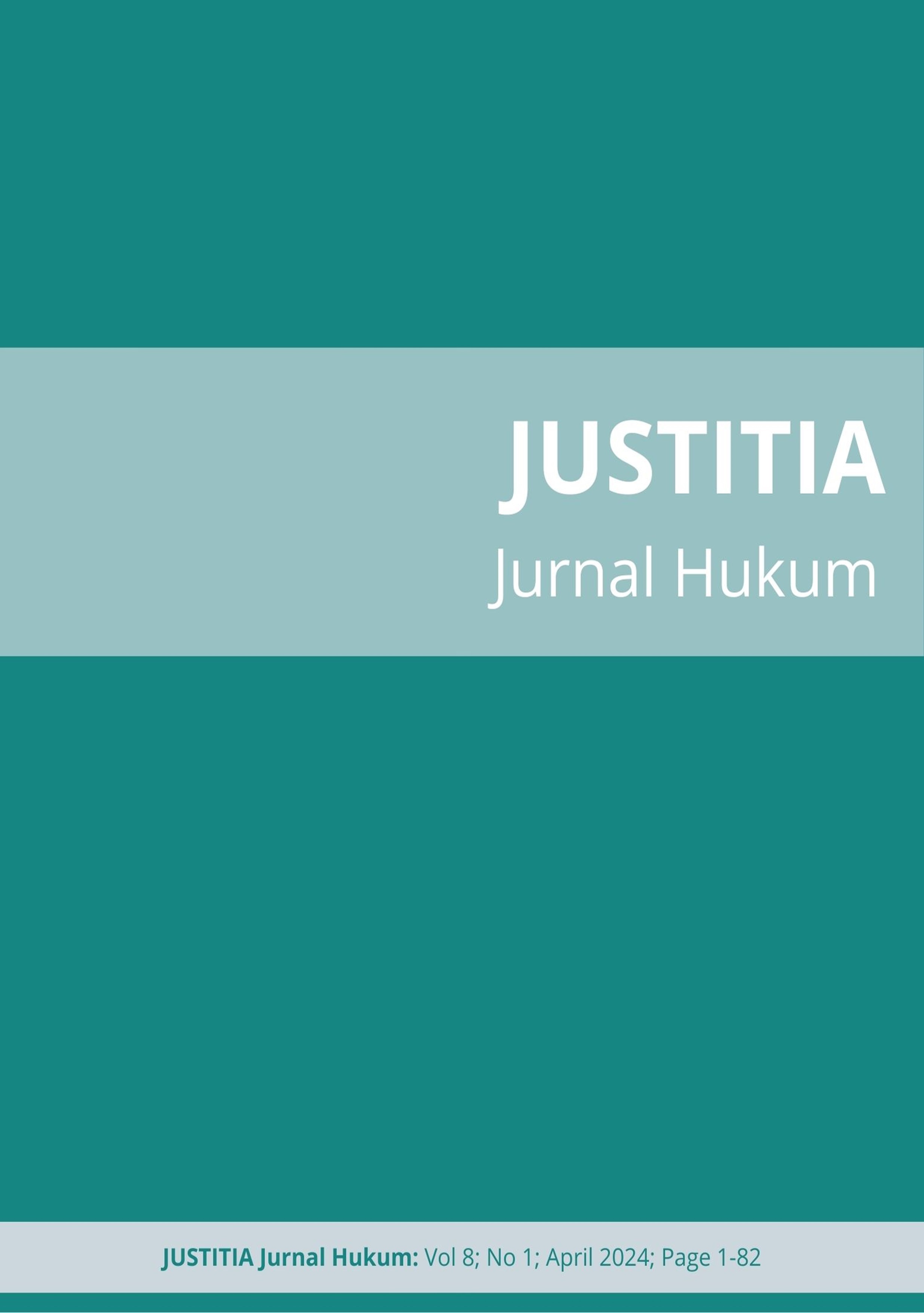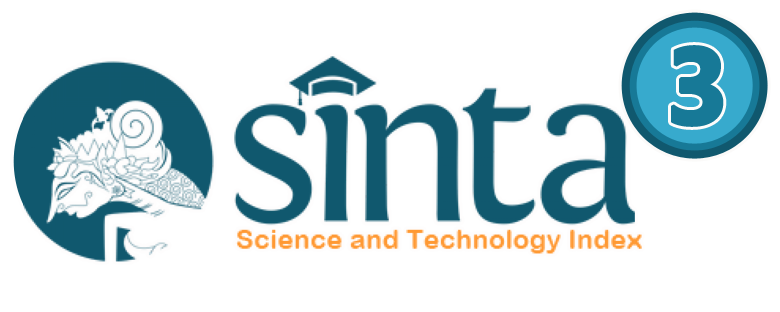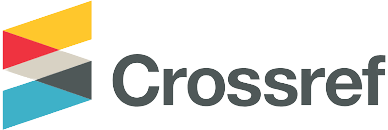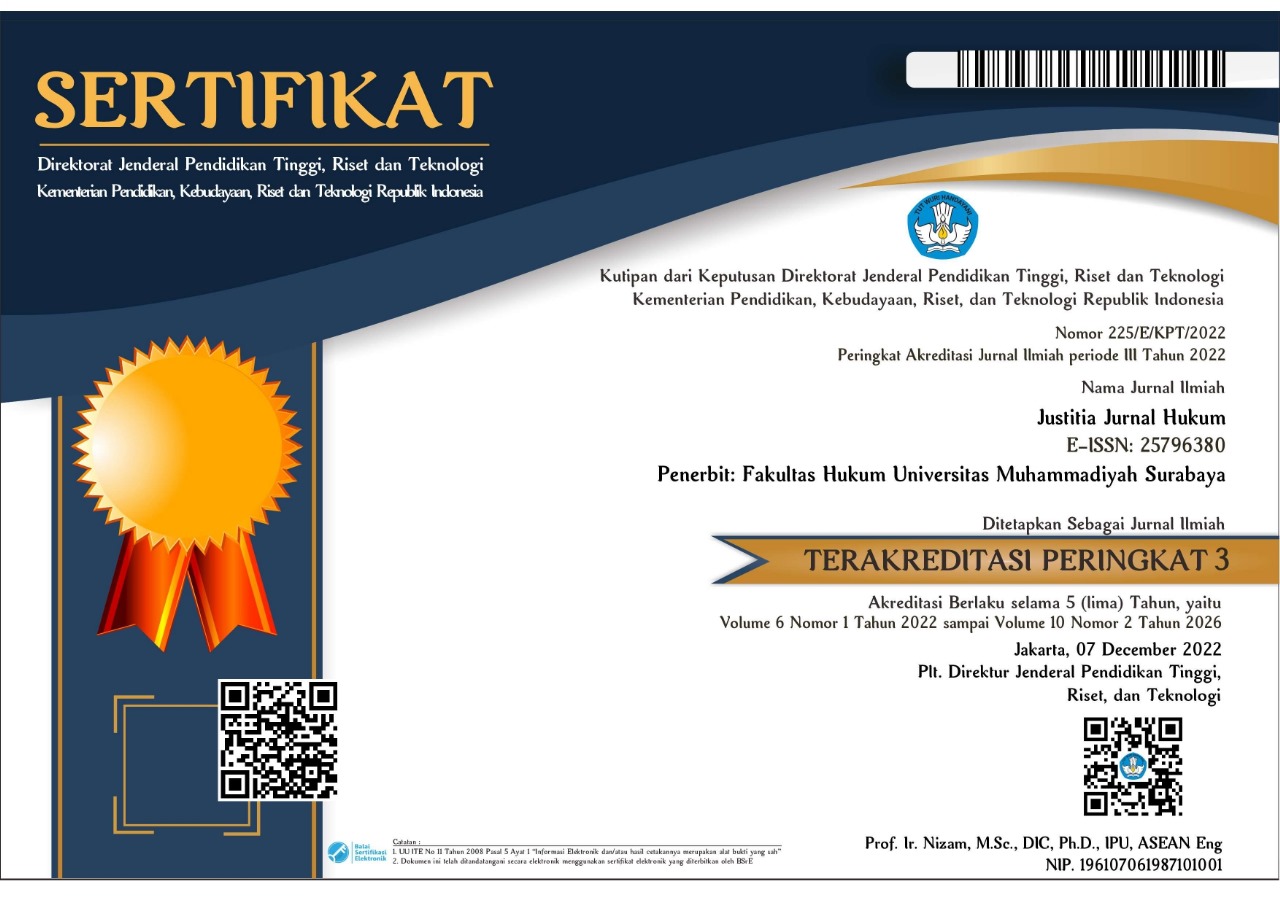Implementation of Diversion in the Settlement of Juvenile Criminal Cases in the Jurisdiction of Sorong Regency
DOI:
https://doi.org/10.30651/justitia.v8i1.22468Abstract
Diversion aims to keep offenders away from the formal judicial system. The implementation of diversion in resolving juvenile criminal cases, particularly in Sorong Regency in 2023, involved at least two cases of juvenile theft. The purpose of this research is to examine the implementation of diversion in resolving juvenile criminal cases in the jurisdiction of Sorong Regency, to determine whether it complies with Law No. 11 of 2012 concerning the Juvenile Criminal Justice System. Additionally, this research aims to analyze the factors influencing the implementation of diversion in resolving juvenile criminal cases in the jurisdiction of Sorong Regency. The research methodology used includes two approaches: a qualitative approach (both empirical and normative juridical) supported by a quantitative approach (content analysis and simple statistical data). Based on the research results, the factors influencing the effectiveness of the implementation of diversion in resolving juvenile criminal cases in the jurisdiction of Sorong Regency are: first, legal factors, specifically the brief time frame provided by the law for the diversion process, and the necessity to regulate the age of the child victim who can independently give consent in the Diversion Agreement; second, law enforcement factors, including judges and Bapas probation officers; third, facility factors, such as the availability of waiting rooms for children, juvenile courtrooms, diversion rooms, and juvenile detention facilities; fourth, community factors, wherein the presence of community elements can allow the victim to hear input from various parties, thereby facilitating successful diversion agreements; and fifth, cultural and traditional factors of the Sorong Regency community, particularly the Moi tribe as the indigenous group in Sorong Regency.
Downloads
Published
How to Cite
Issue
Section
License
Copyright (c) 2024 Muhammad Rizal

This work is licensed under a Creative Commons Attribution 4.0 International License.











